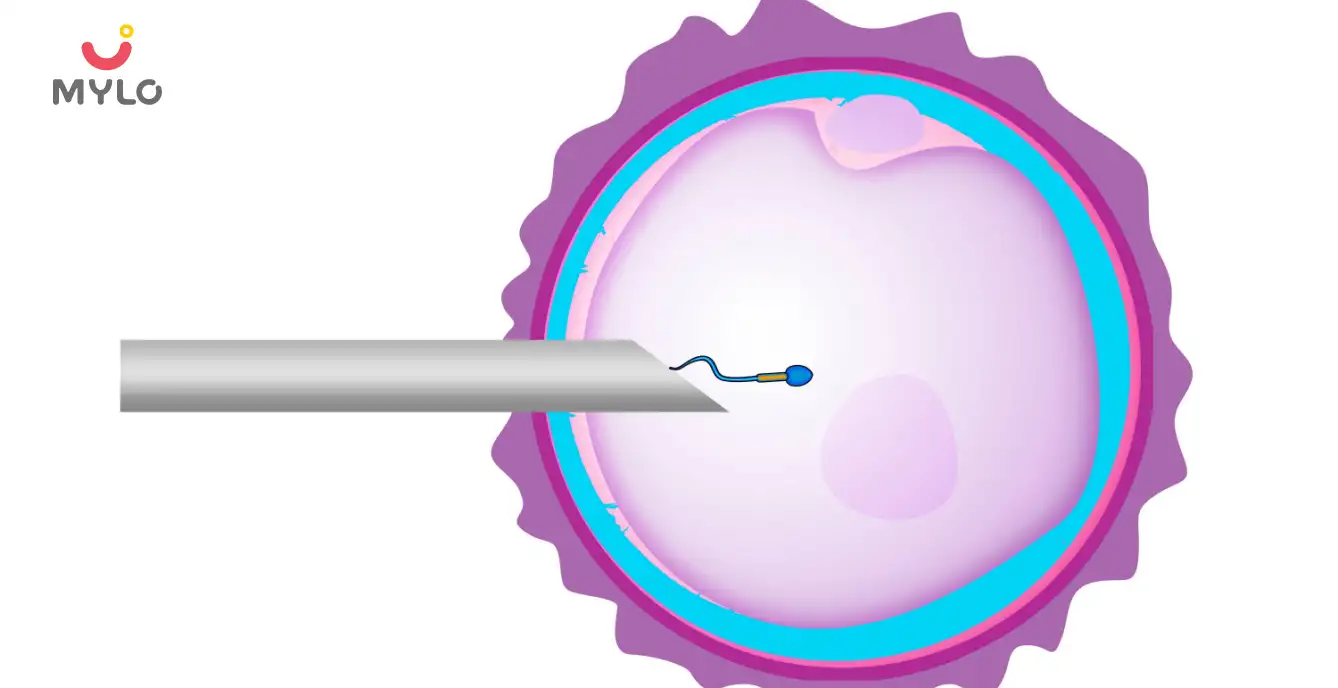Home

Periods

Period During Breastfeeding What Every New Mother Should Know
In this Article

Periods
Period During Breastfeeding What Every New Mother Should Know
Updated on 14 July 2023
Welcome, new mothers, and enlighten yourself about period during breastfeeding. We understand the curiosity and anxiety that can arise regarding your recovery and the well-being of your newborn. One common concern is when your periods will return after delivery, and the worry of a potential pregnancy can also arise. But fear not, super moms! We have you covered with all the essential information you need.
In this comprehensive write-up, we will explore the factors like irregular periods during breastfeeding, period after c section while breastfeeding and others and also provide valuable tips on maintaining menstrual health while breastfeeding. We go beyond the basics to address your concerns and provide a wealth of knowledge on this intriguing topic. So, sit back, relax, and prepare to be enlightened on all aspects of periods during this beautiful phase of motherhood.
What Changes Occur in the Menstrual Cycle After Pregnancy?
The menstrual cycle undergoes various changes after pregnancy. Here are some common changes that can occur:
1. Irregular cycles
It is normal for the menstrual cycle to be unstable or unpredictable for a while after pregnancy. The return of ovulation and the re-establishment of a regular cycle can take some time, especially if you exclusively breastfeed.
2. Delayed return of periods
If you exclusively breastfeed your baby, especially on-demand and during the night, it can delay the return of your menstrual periods. This is due to the hormone prolactin, which is responsible for milk production and suppressing ovulation.
3. Heavier or lighter flow
The intensity and duration of menstrual flow can vary after pregnancy. Some women may experience heavier periods, while others may have weaker flows.
4. Changes in cycle length
The length of your menstrual cycle may change after pregnancy. It can become shorter or longer than your pre-pregnancy cycles.
5. Premenstrual symptoms
Some women may notice changes in premenstrual symptoms after pregnancy. Symptoms such as breast tenderness, mood swings, or bloating may differ in intensity or duration.
6. Period after C section while breastfeeding
After a C-section delivery, the return of menstruation can vary for each woman. However, it is often delayed during breastfeeding due to the suppression of ovulation caused by breastfeeding hormones. Some women may experience a delay of several months or longer before their periods resume.
You may also like: Oligomenorrhea: What Every Woman Needs to Know About Irregular Periods
5 Factors that Affect Period During Breastfeeding
Several factors can cause irregular periods during breastfeeding. Here are five key factors to consider:
1. Exclusive breastfeeding
The frequency and intensity of breastfeeding can impact the return of your period. Exclusive breastfeeding, particularly on-demand and during the night, releases higher levels of the hormone prolactin, suppressing ovulation and delaying your period's return.
2. Supplemental feeding
Supplementing breastfeeding with formula or introducing solid foods to your baby can decrease the amount of breastfeeding, leading to a higher chance of ovulation and an earlier return of your period.
3. Baby's feeding pattern
The frequency and duration of your baby's feeding sessions can influence the return of your period. Babies who breastfeed more frequently and for longer durations are more likely to delay the return of your period.
4. Hormonal fluctuations
After childbirth, hormonal changes occur in your body. The levels of estrogen and progesterone fluctuate, and it takes time for your body to regulate these hormones, which can affect the timing of your period's return.
5. Individual variations
Every woman's body responds differently to the hormonal changes associated with breastfeeding. Some women may experience a longer delay in their period's return, while others may have a shorter pause or even resume menstruation relatively soon after childbirth.
When Does Menstrual Cycle Resume After Delivery?
The timing of breastfeeding and period after delivery can vary for each woman. Here are some general guidelines:
1. Non-breastfeeding mothers
If you are not breastfeeding, it's common for your menstrual cycle to return within 6 to 8 weeks after delivery. However, this can vary; some women may experience their period earlier or later.
2. Exclusive breastfeeding mothers
If you exclusively breastfeed, particularly on-demand and during the night, it can suppress ovulation and delay the return of your menstrual cycle. In this case, the timing of your period's return can vary significantly. Some women may experience a longer delay, while others may have no menstrual cycle for several months.
3. Mixed feeding or partial breastfeeding
If you supplement breastfeeding with formula or introduce solid foods, the return of your menstrual cycle may be earlier than exclusive breastfeeding. Introducing supplemental feeds or a decrease in breastfeeding frequency can lead to a resumption of ovulation and the return of your period.
Are Irregular Periods During Breastfeeding Normal?
Yes, irregular periods during breastfeeding are considered normal for many women. This irregularity is primarily due to hormonal fluctuations caused by breastfeeding. The hormone prolactin, responsible for milk production, can suppress ovulation and lead to long gaps between periods or the absence of periods altogether.
What Do Missed Periods While Breastfeeding Mean?
Missed periods while breastfeeding can have different meanings and implications. Here are a few possibilities:
1. Lactational Amenorrhea
If you exclusively breastfeed, particularly on-demand and at night, it can suppress ovulation and delay the return of your periods. This phenomenon is known as lactational amenorrhea.
2. Pregnancy
While breastfeeding can act as natural birth control, it is not foolproof. Ovulation can occur before the return of your period, and it is possible to conceive without having a period.
3. Hormonal Imbalance
Sometimes, missed periods while breastfeeding could indicate a hormonal imbalance unrelated to breastfeeding. Stress, weight changes, or underlying health conditions can disrupt standard hormonal patterns and lead to missed or irregular periods.
You may also like : Hypomenorrhea: When Your Period is Lighter Than Usual
When to See a doctor
It is recommended to see a doctor if you experience any of the following situations regarding your period during breastfeeding:
-
Unusual or persistent symptoms
-
Excessive or prolonged bleeding
-
Sudden changes or irregularities
-
Concerns about fertility or family planning
-
Any other ongoing health concerns
7 Tips for Maintaining Menstrual Health While Breastfeeding
Maintaining menstrual health while breastfeeding is essential. Here are seven tips to help you take care of your menstrual health during this phase:
1. Stay Hydrated
Drinking adequate water helps maintain overall health, including menstrual health. Aim for at least eight glasses of water a day to stay hydrated.
2. Balanced Diet
Consuming a well-balanced diet rich in nutrients is crucial for menstrual health. Include plenty of fruits, vegetables, whole grains, and lean proteins to support hormonal balance and well-being.
3. Gentle Exercise
Regular, gentle exercise can help regulate hormones and improve circulation, which can positively impact your menstrual health. Consult with your healthcare provider to determine suitable exercise options while breastfeeding.
4. Stress Management
Chronic stress can affect your menstrual cycle. Find healthy ways to manage stress, such as practising relaxation techniques, mindfulness, or engaging in activities that bring you joy and help you unwind.
5. Get Adequate Sleep
Prioritize getting enough sleep and establish a consistent sleep routine. Quality sleep supports hormonal balance and overall well-being.
6. Use Suitable Menstrual Products
Choose menstrual products that are comfortable and suited to your needs. Options such as organic pads, tampons, or menstrual cups can be considered based on your preferences.
7. Monitor Your Menstrual Cycle
Keep track of your menstrual cycle, noting the duration, flow, and any changes or irregularities. This information can be helpful when discussing your menstrual health with your healthcare provider.
Key Takeaways
In conclusion, most women are confused about when they will get their period during breastfeeding, and we have explored the reasons behind it. Remember, each woman's experience is unique, so it's essential to listen to your body and consult your healthcare provider if you have any concerns or questions. You can support your overall postpartum recovery and well-being by taking care of your menstrual health.
References
1. Baszak, E., Radomański, T., & Sikorski, R. (2000). [Resumption of menstruation during lactation after delivery]. Ginekologia Polska.
2. Egbuonu, I., Ezechukwu, C. C., Chukwuka, J. O., & Ikechebelu, J. I. (2005). Breast-feeding, return of menses, sexual activity and contraceptive practices among mothers in the first six months of lactation in Onitsha, South Eastern Nigeria. Journal of Obstetrics and Gynaecology.



Written by
Madhavi Gupta
Dr. Madhavi Gupta is an accomplished Ayurvedic doctor specializing in Medical content writing with an experience of over 10 years.
Read MoreGet baby's diet chart, and growth tips

Related Articles
Related Questions
Hello frnds..still no pain...doctor said head fix nhi hua hai..bt vagina me pain hai aur back pain bhi... anyone having same issues??

Kon kon c chije aisi hai jo pregnancy mei gas acidity jalan karti hain... Koi btayega plz bcz mujhe aksar khane ke baad hi samagh aata hai ki is chij se gas acidity jalan ho gyi hai. Please share your knowledge

I am 13 week pregnancy. Anyone having Storione-xt tablet. It better to have morning or night ???

Hlo to be moms....i hv a query...in my 9.5 wk i feel body joint pain like in ankle, knee, wrist, shoulder, toes....pain intensity is high...i cnt sleep....what should i do pls help....cn i cosult my doc.

Influenza and boostrix injection kisiko laga hai kya 8 month pregnancy me and q lagta hai ye plz reply me

RECENTLY PUBLISHED ARTICLES
our most recent articles

Brain Development
Role of Stories and Rhymes in Your Baby’s Brain Development

Male Infertility
Intracytoplasmic Sperm Injection (ICSI) How It Can Help Treat Male Infertility

Celebrate Breast Feeding Week
Baby Sleeping While Breastfeeding: Understanding the Causes and Solutions

Breast Lump
Lump in Breast During Breastfeeding How to Identify, Treat, and Prevent Lump Formation

Developmental Disorders
Understanding Down Syndrome: A Comprehensive Guide for Parents

Lactation Issues
Lactation Failure: A Comprehensive Guide to Understanding the Causes and Solutions
- Breast Pain During Pregnancy: What to Expect and How to Find Relief
- Baby Spit Up: The Ultimate Guide to Causes, Prevention, and Management
- Unexplained Infertility: Breaking Down the Factors and Finding Solutions
- Mulethi: Unraveling the Therapeutic Potential of Licorice Root for Your Overall Health
- 5 Steps to a Healthy Lifestyle: The Blueprint for Your Wellness Journey
- Chandraprabha Vati: How This Potent Ayurvedic Formulation Can Boost Your Health
- Trichomoniasis: Meaning, Symptoms, Causes and Risks
- Gallstones in Pregnancy: Symptoms, Complications & Treatment
- Fertility Massage: A Holistic Approach to Boosting Fertility Your Chances of Conception
- Baby Vomiting After Feeding: Understanding the Causes and Solutions for Upset Stomach
- Why do you need to wear a high waisted panty during pregnancy?
- Top 5 Precautions You Should Take After Getting an IVF Treatment
- Baby Kicking During Pregnancy: Unveiling the Wonders of Quickening in Pregnancy
- Daddy duties: Here's your guide to fatherhood


AWARDS AND RECOGNITION

Mylo wins Forbes D2C Disruptor award

Mylo wins The Economic Times Promising Brands 2022
AS SEEN IN

- Mylo Care: Effective and science-backed personal care and wellness solutions for a joyful you.
- Mylo Baby: Science-backed, gentle and effective personal care & hygiene range for your little one.
- Mylo Community: Trusted and empathetic community of 10mn+ parents and experts.
Product Categories
Baby Carrier | Baby Soap | Baby Wipes | Stretch Marks Cream | Baby Cream | Baby Shampoo | Baby Massage Oil | Baby Hair Oil | Stretch Marks Oil | Baby Body Wash | Baby Powder | Baby Lotion | Diaper Rash Cream | Newborn Diapers | Teether | Baby Kajal | Baby Diapers Pants | Cloth Diapers | Laundry Detergent | Lactation Granules |




